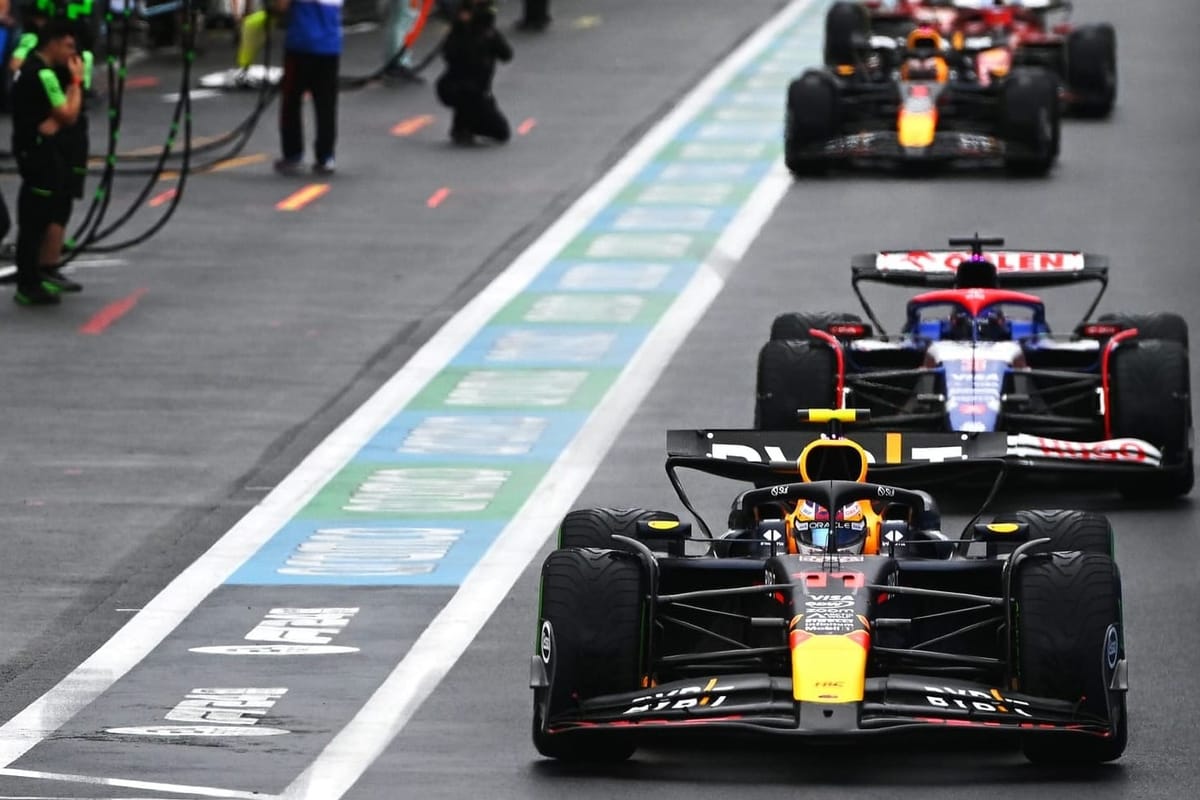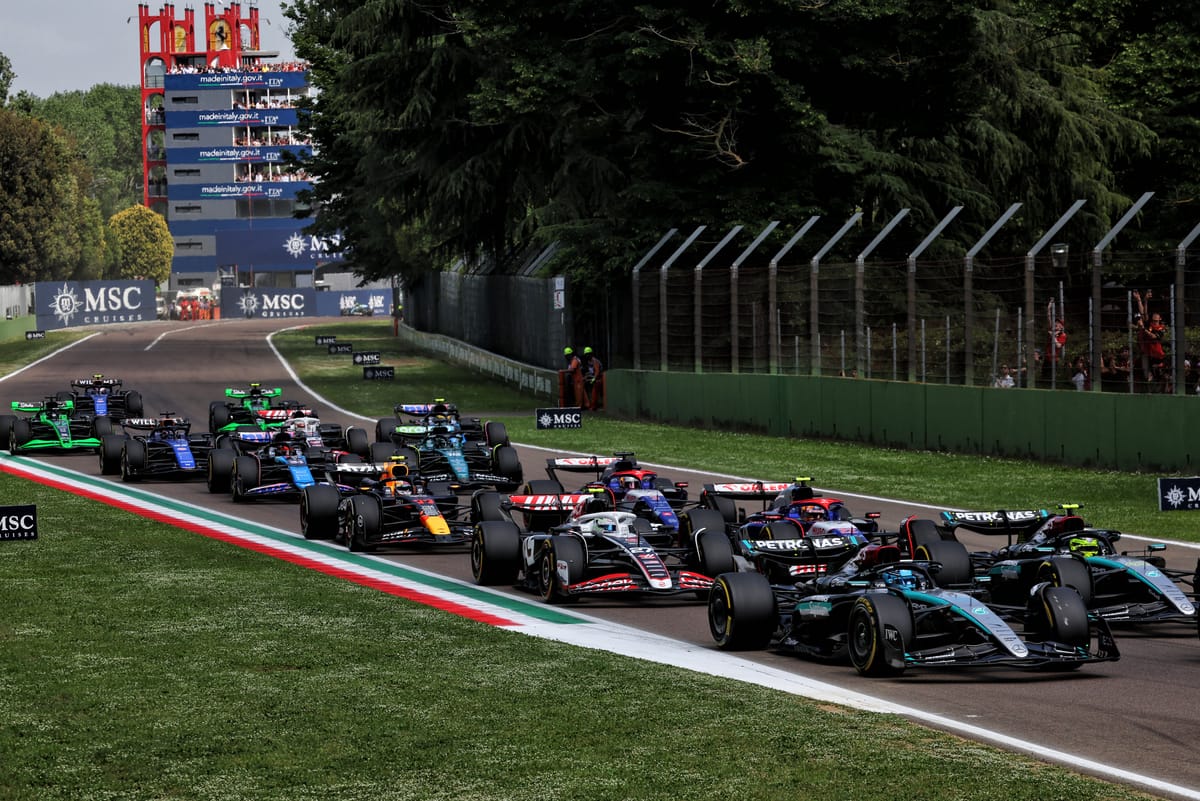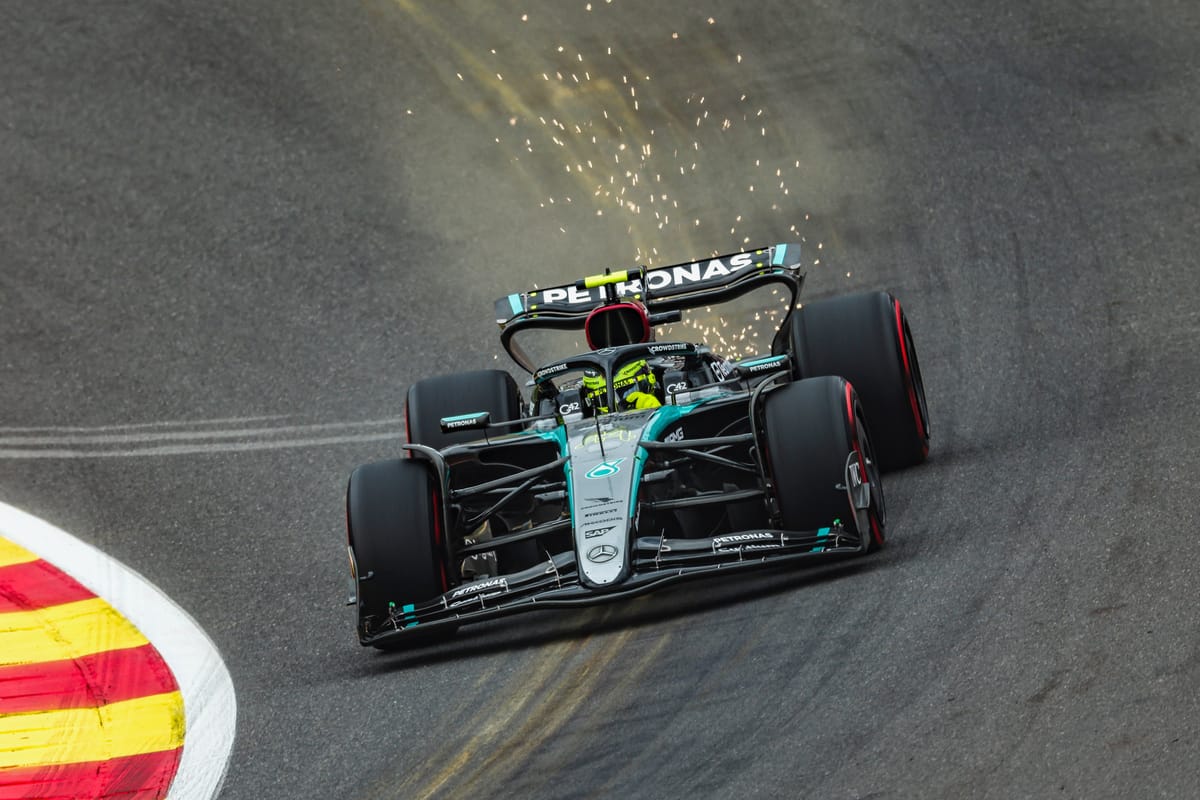Up Next

Lewis Hamilton and Fernando Alonso are living proof that age is no barrier to a Formula 1 driver continuing to perform at the highest level. But that doesn't mean it's easy to maintain that performance, as Daniel Ricciardo has detailed.
And the yo-yoing perception of 35-year-old Ricciardo, between a solid candidate to replace Sergio Perez at Red Bull and a driver who should make way for a youngster like Liam Lawson, shows how much of a knife-edge an F1 driver in their mid-30s lives on.
Yes, you can't put Ricciardo in the elite bracket like you can Hamilton or Alonso any more. But Ricciardo is an eight-time grand prix winner who was arguably F1's best driver in both 2014 and 2016, one who usurped Sebastian Vettel as Red Bull's leader, then was the only Red Bull team-mate to hold a candle to Max Verstappen.
And yet a bruising couple of years with McLaren and a weaker head-to-head record versus RB team-mate Yuki Tsunoda has left Ricciardo scrambling to find the form that can save his F1 career.
It isn't about declining reaction times or age-associated 'wears', he insists, but the need to deal with something else very difficult.
There have been plenty of highs in Ricciardo's 2024 campaign so far - his fourth in the Miami sprint was superb - but they've been punctuated by too many lows for him to grab the dream Red Bull return that Perez's poor form made a genuinely attainable possibility.
Dealing with those swings isn't easy. F1 2024's brutal 24-race calendar with six sprint races (and sprint qualifying sessions) means there are 60 competitive qualifying or race sessions.
That's 60 chances to change your narrative for better or worse. Great if you're down and in need of a quick comeback, but awful if the high of a top four in a sprint is short-lived because you're knocked out in Q1 a few hours later - see Ricciardo's Miami weekend for that.
It's the same for every driver of course. But imagine you've been dealing with that knife-edge for almost 13 seasons. And doing so without the job security enjoyed (and earned) by a very select few veterans like Hamilton and Alonso.
That inevitably becomes grating over time. It's why you often see drivers towards the end of their career finding themselves down a hole they just can't get out of like David Coulthard and Mark Webber (relative to Sebastian Vettel, at least) or stuck in a cycle of succumbing to their biggest weaknesses (inconsistency and overdriving) like Romain Grosjean.
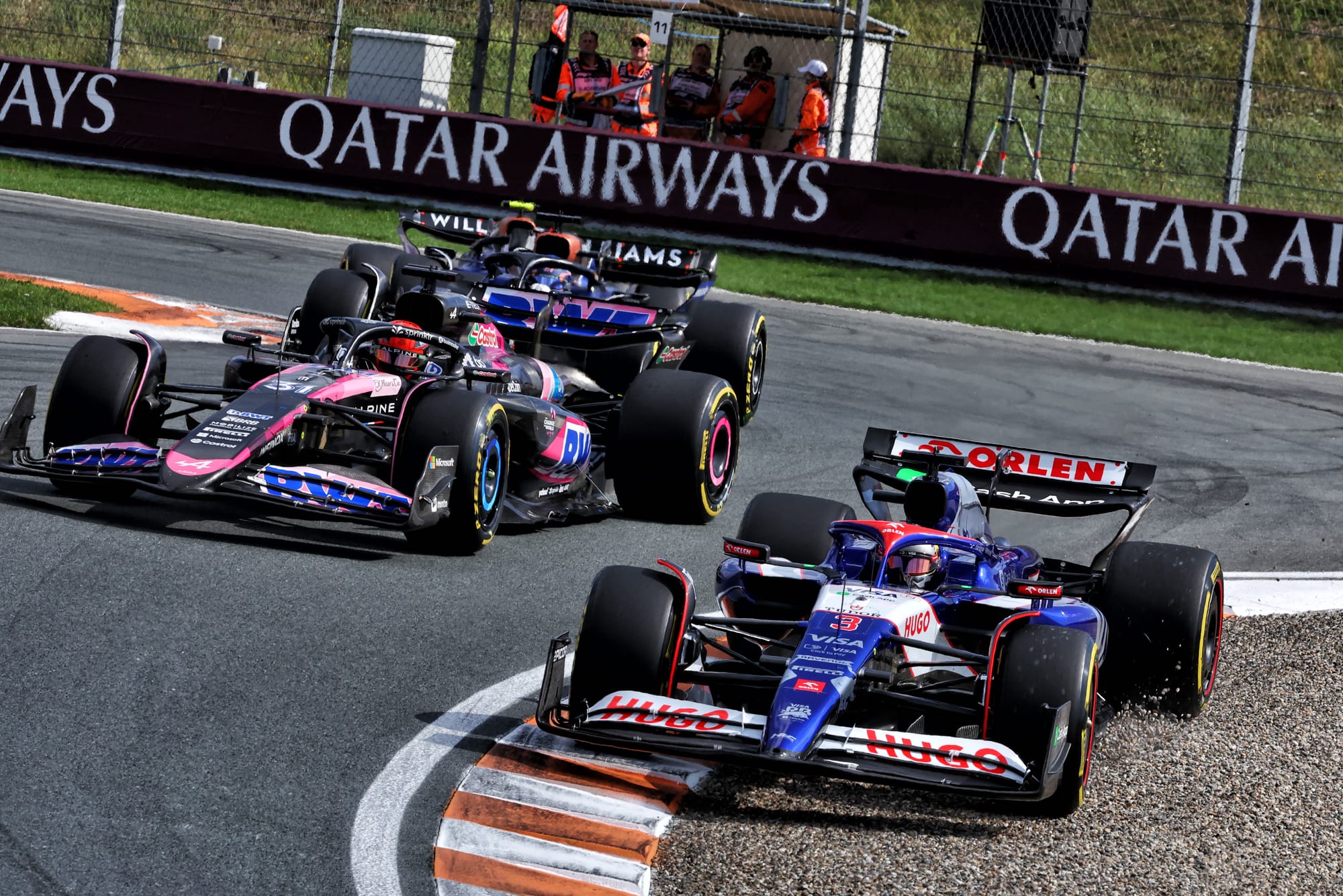
Digging yourself out of a hole is tough enough for an F1 driver but if it's the fifth, sixth, seventh time you're doing that in your career, it's tough - especially when the races come thick and fast and there's little room to step back and analyse.
"It's tricky. You can go from one day to the next. You can feel like s*** and you're hanging on...I don't want to say hanging on for dear life, that's extreme. But you can definitely get a bit low, then 24 hours later, you can be like, 'Oh I'm back, we're good'," Ricciardo said when asked by The Race's Scott Mitchell-Malm about the swings between the highs and lows not pairing well with such an intense calendar.
"I do my best to try and stay levelled and just maintain that constant level of confidence and self-belief. But it does still sway a little bit, up and down.
"I think back at [being knocked out in Q1 at Zandvoort] and it's pretty f***ed. But it's because we care and I know I'm getting older and all that stuff, so I know it's probably an easy excuse at times, or an easy viewpoint for maybe some people on the outside, but I know that's not it.
"In terms of, I know some of my inconsistencies aren't just, 'Oh, he's getting older'. I think I said in Canada, it's true, I do have to work a bit harder for it these days.
"But the disappointment from yesterday [Saturday at Zandvoort] is there because I know this isn't it. I know I'm not losing it, I've just got to work a bit harder for it.
"I know it's still there. It eats at me a little bit but I still love it, and I still care a lot. So I'll just make sure I put it together and then it will all be OK."
'I'm glad he feels that way'
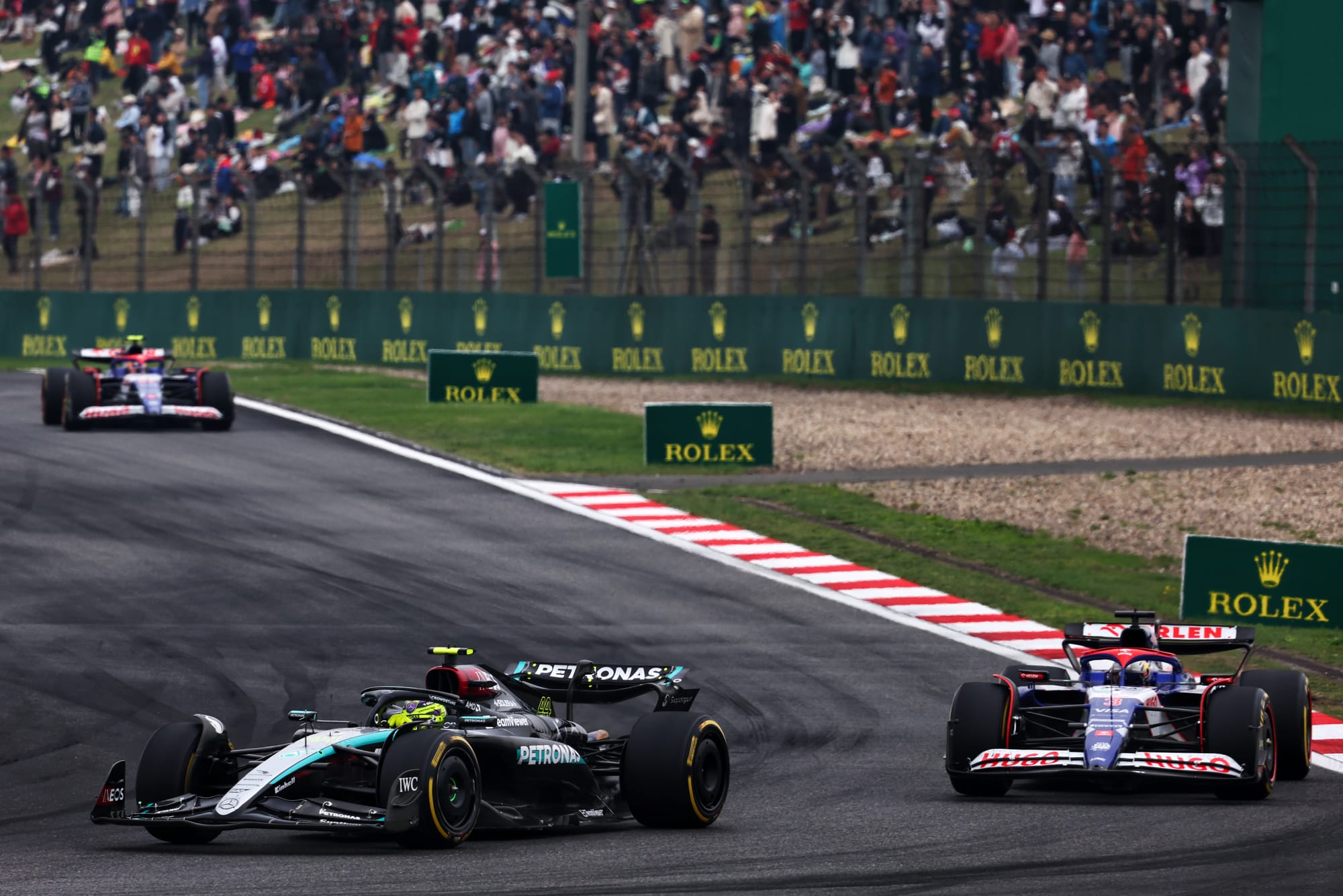
Other than the early-season chassis change request and grievances with some of RB's operational choices, Ricciardo's accepted responsibility for his own shortcomings this year.
Ricciardo admitted his Q1 exit at Zandvoort, his fourth of the year, was because he didn't get the knife-edge balance right in tricky conditions - partly the peakiness of the Pirelli tyres.
Hamilton has called them the peakiest F1 tyres ever, something that's of comfort to Ricciardo.
"The wind is tricky, I think the tyres are peaky and the wind slides the cars more so you can get off that knife-edge," Ricciardo explained.
"I look back at Miami, my sprint was amazing and then a few hours later I was out in Q1. And in same, very hot conditions, and when the tyres are being put in a difficult situation, it does make it really tricky.
"It's the same for everyone and we have to deal with that. That's where I expect more from myself and to be able to deal with it better than others but no denying that those conditions are really tough and if you get it right, it looks easy and if you get it wrong you look like someone who doesn't know how to drive too well.
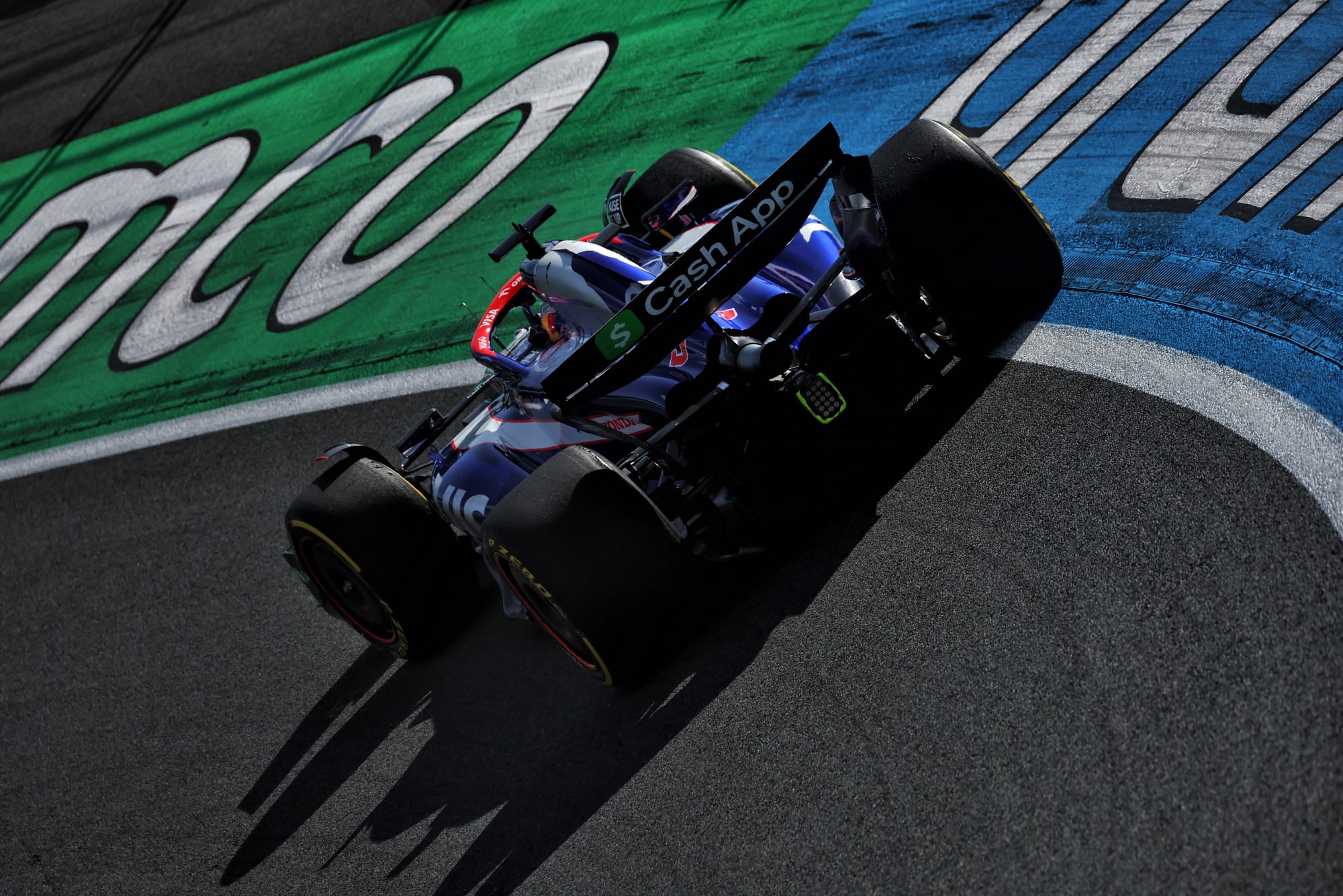
"I'm glad [Hamilton] feels that way because sometimes you feel alone. But deep down we all feel it and some days you figure it out, and some days you don't."
Even reaching those highs is "mentally draining" as Ricciardo described his eighth-place finish at the Canadian Grand Prix - still the watermark for his Sundays in 2024. There, he had to cope with mixed conditions and a five-second time penalty for a jump start that threatened to squander his fifth on the grid.
A crucial difference to McLaren nadir
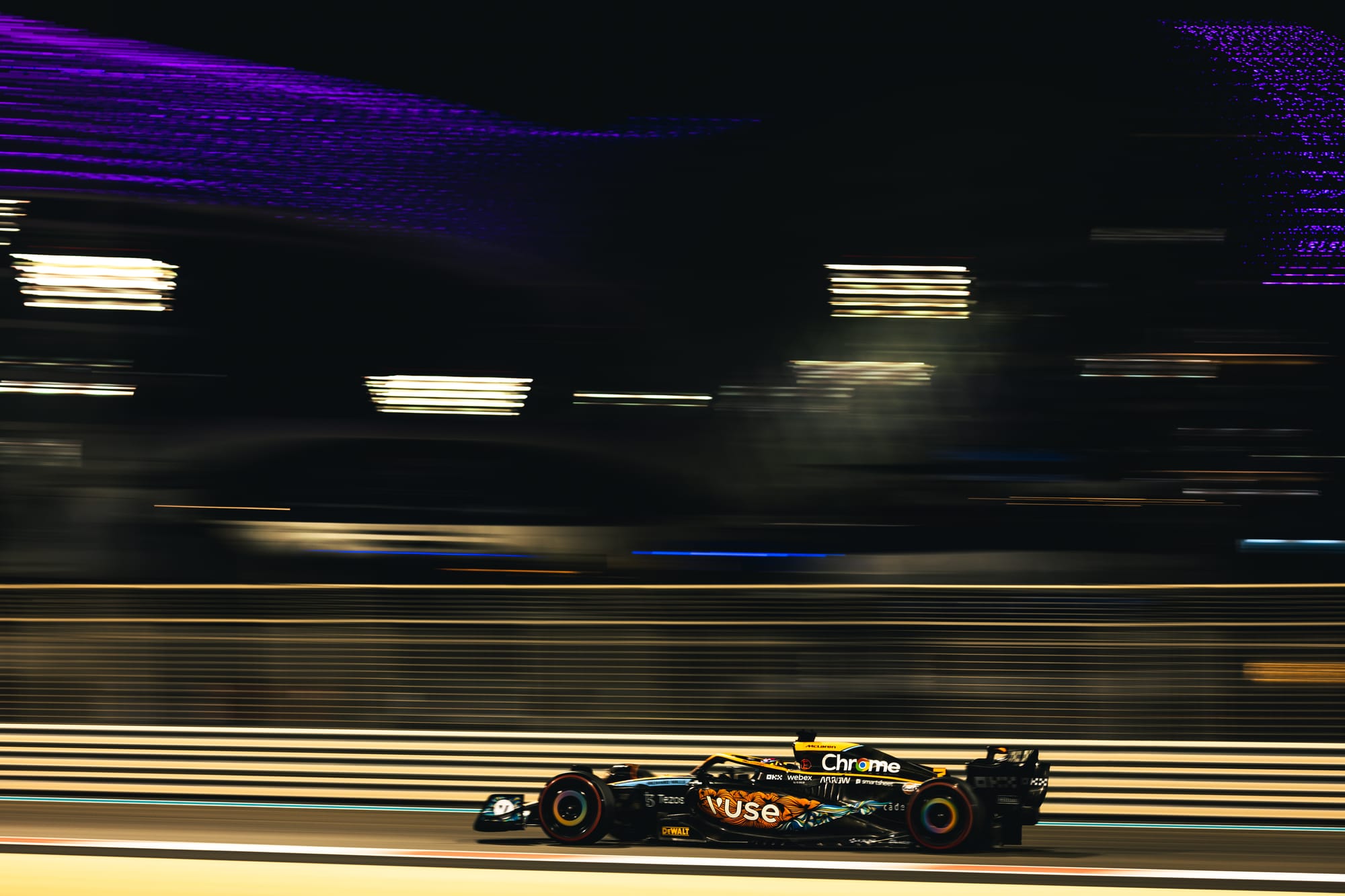
It's inevitable that comparisons between Ricciardo's struggle to find consistent form at RB and his terminal decline at McLaren are made. Some of the rhetoric has been the same but the situation and the way Ricciardo is feeling is very different.
In 2022, Ricciardo totally lost confidence in his McLaren. He couldn't replicate what team-mate Lando Norris could do with the MCL36 and that killed his confidence and enjoyment for each weekend.
At RB, Ricciardo generally has confidence in the car, even if it's far from perfectly to his liking. And he's able to extract highs from the RB that he couldn't from the McLaren in 2022. He hits the lows with the knowledge he can still produce highs; he didn't have that luxury during his second and final season at McLaren.
Tsunoda has scored 22 points to Ricciardo's 12 this year and Tsunoda still has an average qualifying advantage of around a tenth. What Ricciardo can do to change those statistics before the end of the season will ultimately define the end of his F1 career.
Beat Tsunoda more consistently and he'll either make himself irreplaceable at RB or the right replacement for Perez at the senior team. Fail to do so and he's at major risk of losing out in a 2025 seat shuffle to Lawson - with zero options (or, seemingly, any desire) to stay on the grid outside of Red Bull's teams.
But whichever of the scenarios happen, Ricciardo's adamant he'd be ending his F1 career in a far better place than he sunk to at McLaren.
"I look back...it's funny because 2021, my first season with McLaren, I was having the lows and highs and that was already, 'This is a bit strange'. But then compared to the second season, I look back and actually the first season wasn't too bad," Ricciardo added.
"My second half of the season was actually pretty good. When I thought it was bad, it kind of got worse, and that spiralled a bit out of control.
"Not only did it mess with the on-track stuff but off-track I was just not really as excited to race because ultimately I lost confidence in myself and you're just in that negative cycle.
"I definitely don't feel like I'm there.
"Whatever happens from this point moving forward and my future, whatever day it is that I leave the sport, I won't feel those feelings I felt then.
"I was in a different place, so ups and downs now are different to ups and downs of a few years ago."



